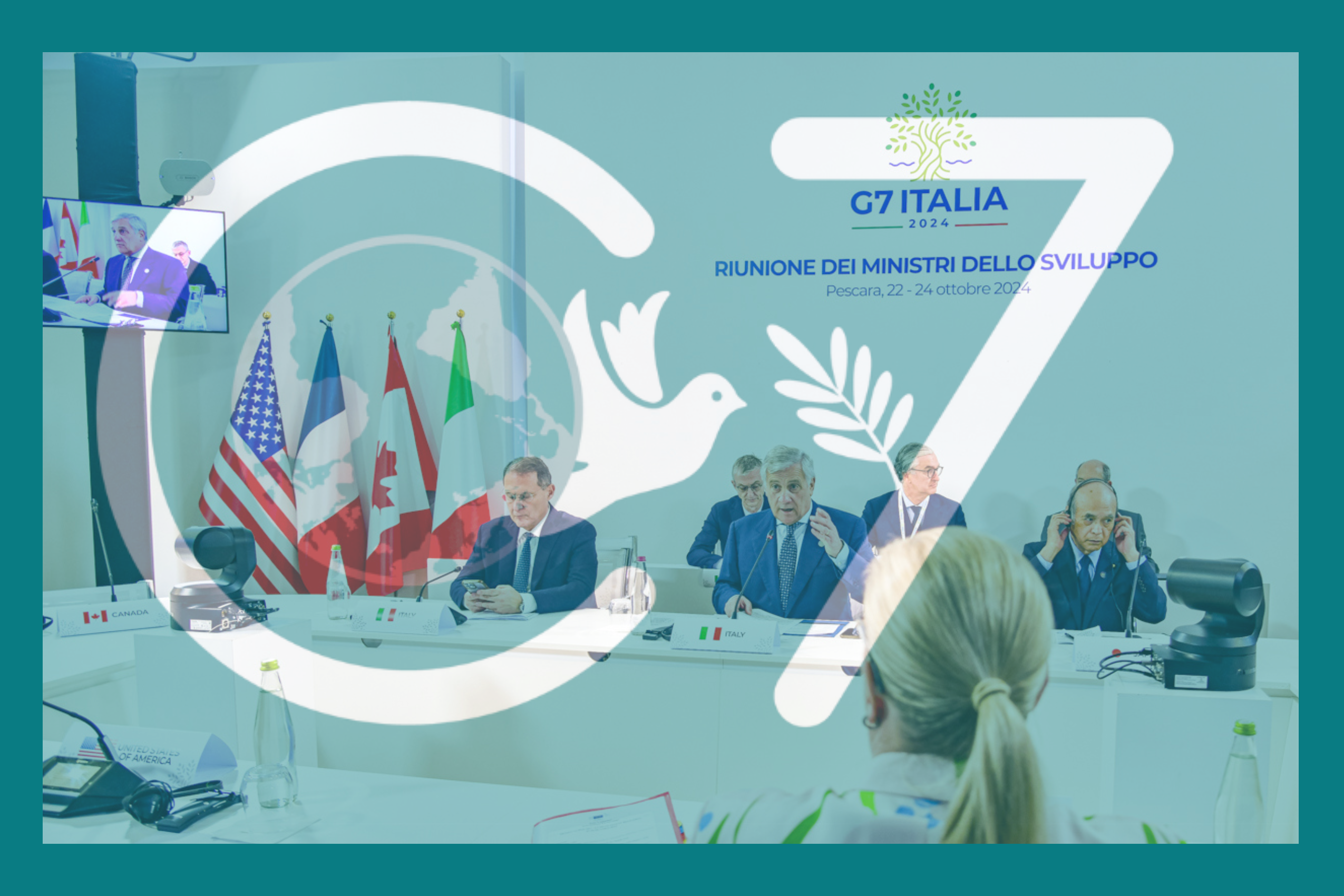G7 Ministerial Meeting on Development: C7 calls for concrete financial commitments and focus on Official Development Assistance

Rome, 24 October 2024 – The international civil society organisations gathered in Civil 7 (C7), the official space for dialogue with the G7, call for more substantial commitments to development cooperation, as already highlighted in the C7 Communiqué delivered to the G7 last May and reiterated in the Statement addressed to the G7 Development Ministers in the days before the G7 Ministerial Meeting in Pescara.
We appreciate the renewed condemnation of the Russian aggression against Ukraine and the call of the G7 Ministers to make possible humanitarian intervention in crisis areas, in which many civil society organisations are protagonists, currently prevented in several war scenarios by some of the parties, such as in Gaza and Sudan. However, we believe that the serious and persistent violation of International Humanitarian Law requires actions promoted by the G7 governments, including the request to convene the UN Security Council on this issue, along with courageous and immediate initiatives by the international community to open dialogue between the parties. This is imperative in the face of rampant wars and indiscriminate attacks on civilians and humanitarian workers.
We carefully observe the definition of the AFSI (Apulia Food Systems Initiative) with the intention of ensuring coherence between the promotion of sustainable food systems and climate policies, with the central role of small-scale farmers, and a focus on gender transformative processes. The role of the United Nations, although reaffirmed in the G7 Ministers’ Communiqué, must be concretely central to policy-making with local, institutional and social actors, never diminished by parallel decision-making processes.
We express a general concern about the financial governance of the various policies on which the G7 Development Ministers expressed their commitment, both from the point of view of the rules and the size of the resources provided. There is no reference in the Communiqué to the regulation of financial markets or to mechanisms to protect against speculative phenomena that make commodity prices volatile, especially food prices, which seriously jeopardise the incomes of the peasant world and the universal right to food of the poorest segments of the population.
Strengthening the PGII investment initiative (Partnership for Global Infrastructure and Investment) requires the formal participation of local communities, including indigenous communities, in policy-making mechanisms, since they are the ones most affected by the benefits and potential risks of these choices.
We do not see clear and unambiguous commitments to define the resources made available for Official Development Assistance, fulfilling the governments’ pledge of 0.70 of GNI, nor effective actions regarding the elimination of the debt burden, which would instead require more concrete commitments, from cancellation to possible debt swaps.
Clarity and concreteness are also needed on the effective financing of climate action, with commitments made by governments and still not fulfilled, on education, for which stronger global and G7 member country investments are needed, on global health, where we renew our call for the extension of production possibilities for therapies, vaccines and diagnostic products in the global South, and a more flexible and effective use of the TRIPS agreements and the Doha Declaration to remove intellectual property obstacles. Finally, there continues to be a lack of recognition of gender-based violence in all its forms as a structural problem, the combating of which is an essential component and prerequisite for sustainable development.
More generally, the concern is for initiatives involving the private sector. This can be a relevant actor for the realisation of interventions (services, infrastructures), but it cannot be the author and implementer of policies, a role that remains firmly in the public domain, of the citizens and the public institutions that represent them. Many partnerships have too often turned into opportunities for small groups of private companies who have benefited from large public resources with minimal investments. Transparency and affirmation of public policies are necessary conditions for private investments to have a real leverage effect and cascading benefits for the community.
Civil7 press release
Contact details: Dario Lo Scalzo, e-mail communications@civil7.org, cell: + 349 38 95 415
